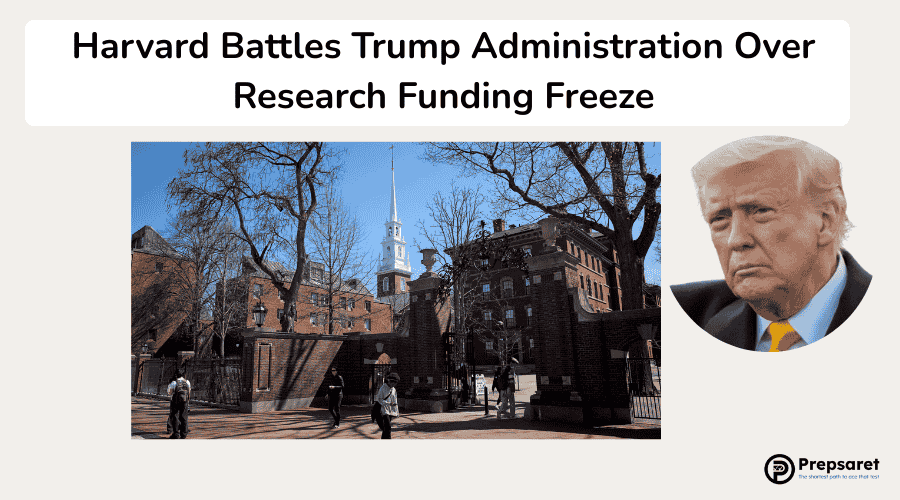Highlights:
- Harvard has filed a federal lawsuit challenging the Trump administration’s $2.2 billion freeze on research funding.
- The university argues the decision violates both the First Amendment and the Administrative Procedure Act.
- The case underscores broader concerns over academic freedom, government overreach, and the politicization of federal funding.
- The administration defends its move as a response to universities’ alleged failure to address antisemitism on campuses.
- The outcome could set a significant precedent regarding the limits of executive power over educational institutions.
BOSTON, April 28, 2025 — A high-stakes legal battle between Harvard University and the Trump administration is set to begin in a Massachusetts federal courtroom, as the Ivy League institution challenges a sweeping freeze on $2.2 billion in federal research grants.
The lawsuit, which names multiple federal agencies including the Department of Education, Department of Justice, and National Institutes of Health, comes in response to a federal decision to halt funding after what the White House described as a failure by Harvard to adequately address antisemitism on campus.
The administration also cited similar actions against other universities, such as Cornell and Northwestern, while issuing warnings to dozens more.
Broader Implications for Higher Education
While the immediate dispute centers around Harvard’s funding, legal scholars emphasize that the implications go far beyond one university. “The fight is actually bigger than just, oh, how much money does Harvard have,” said Osamudia James, a law professor at the University of North Carolina.
“What is at stake here is whether an administration can just do whatever it wants to do and punish entities that they perceive as a threat.”
Harvard contends that the administration’s move infringes on First Amendment rights and violates the Administrative Procedure Act of 1946, which prohibits federal agencies from taking arbitrary or capricious actions.
The university’s legal team also argues that the government’s approach to enforcement undermines the independence of academic institutions
Legal Strategy and Political Undertones
In a move signaling the seriousness of its challenge, Harvard has enlisted two prominent Republican-aligned lawyers: William Burck and Robert Hur. Both are known for their connections within conservative legal circles, suggesting Harvard hopes to build bipartisan credibility in court.
Judge Allison Burroughs, who previously ruled in favor of Harvard in a race-conscious admissions case later overturned by the Supreme Court, will preside over the hearings.
The Trump administration, meanwhile, has defended its stance. “The president has made it quite clear that it’s Harvard who has put themselves in the position to lose their own funding by not obeying federal law,” said White House Press Secretary Karoline Leavitt.
As proceedings begin, the case could serve as a defining moment for the balance of power between universities and the federal government—especially when political tensions run high.
Also in the News:

